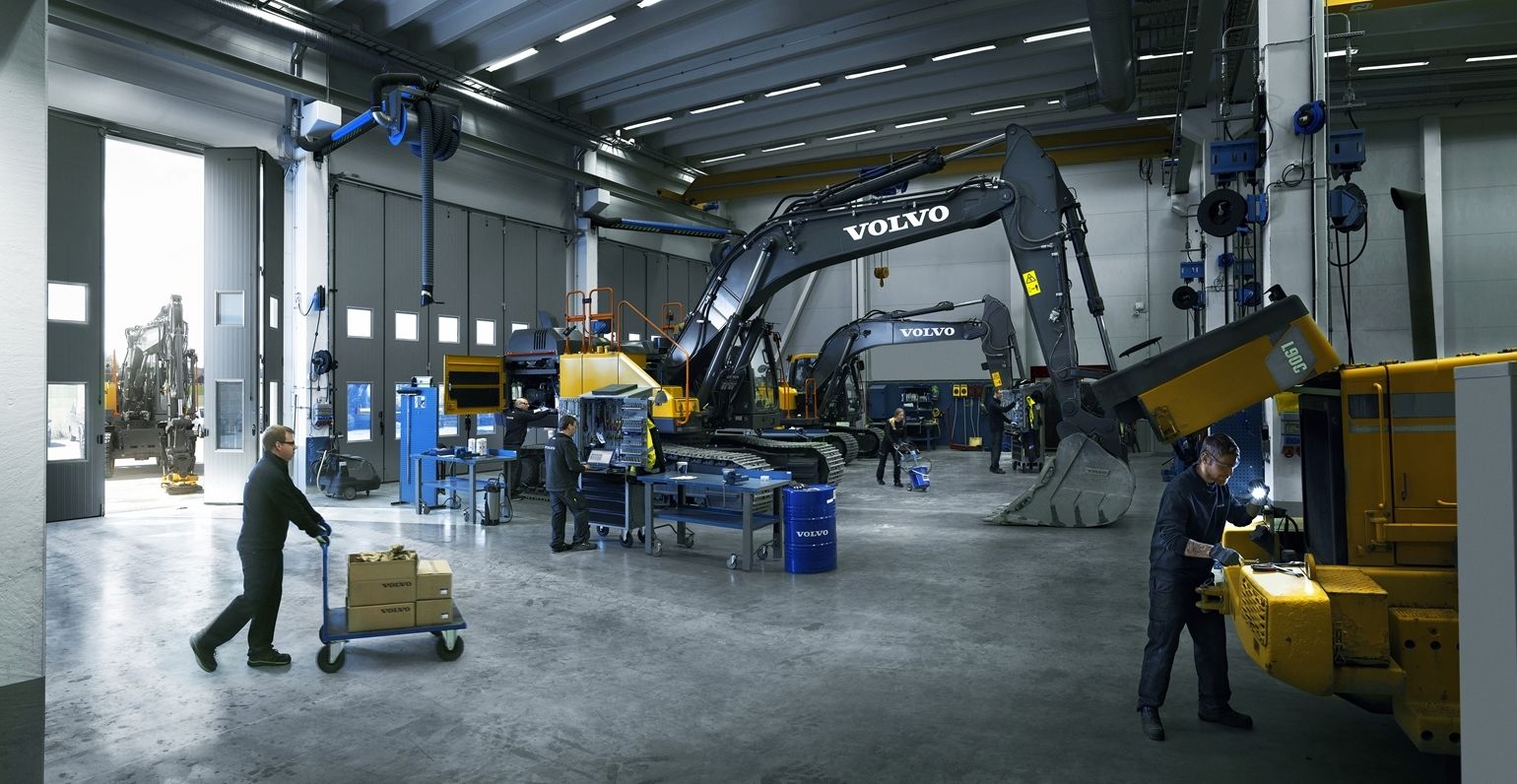
Van Campfort says that the shift to a greener and more circular use of construction equipment must involve a move from machine ownership to machine access – the value of using a machine, rather than owning it.
"The hundreds of thousands of machines that are being produced each year consume vast amounts of natural resources to build, and even more resources to keep working," she adds. "Then, after a few years, we hope the customer replaces their current machine with new ones – and the process begins again."
She adds that this is not the cycle of the future and for the circular economy to become a reality, an opposite view must be taken and by asking not: 'How we can make more machines?' but 'How can we make fewer machines?'
If Volvo CE's predictions are correct, in the future machine manufacturers will primarily sell solutions, not machines. Customers will pay for machine hours as operating expenses rather than capital expenditure. For manufacturers, revenues will come from the use of equipment rather than from selling individual machines.
In this future world of pay-per-output, the OEM (original equipment manufacturer) could not only provide the service in the form of machines but also provide the operators and general site consultancy. Van Campfort admits that this is "a daunting change" for manufacturers and their dealers. With machines staying on their balance sheets, the incentive will not be to make more machines but to keep the existing fleet running for longer and as efficiently as possible, thanks to regular updates.
In this new world, the way machines are designed will also need to be looked at afresh. According to Van Campfort, 80% of a machine's lifetime environmental impact is determined at the design stage.
"Because of that we need to think about removing waste and pollution right from the start," she says. "We also need to design components to last longer and be easier to repair, refurbish or remanufacture. And at the end of their lifespans, they not only need to be 100% recyclable – we must ensure that they are recycled, upcycled or down-cycled, with the raw materials redeployed in the production of new products or applications."
This focus on sustainable design will be reflected in machine' digital passports' that show their ecological footprint; not just in the manufacture, but throughout their entire lifespan.
Van Campfort says OEMs do not have a choice in the move to this new business model as government commitments, such as the Paris Agreement, EU Green Deal and China's latest Five Year Plan, all raise the profile of sustainability to unprecedented levels.
"Even Wall St. is getting it – with investments flowing into renewable energy and out of fossil fuels," she adds. "The emergence of Smart Cities will become commonplace, and the environmental bar is rising for the machines that will be allowed to work on such projects. The circular economy is going to happen, and the construction equipment industry will have to embrace it if it is to survive."
When will the circular economy of construction equipment be achieved? Not overnight, according to Volvo CE. The European Commission is targeting a 40% cut in greenhouse gas emissions, 32% share for renewable energy and a 32.5% improvement in energy efficiency – all by 2030. Van Campfort says that work on this is already happening at an accelerating rate, with the target for full circularity being 2050.
"The circular economy is not an 'if' anymore, but a 'when'," she concludes. "Yes, creating it will be disruptive. Yes, it will involve dramatic changes. But the benefits of a waste-free, truly holistic economy are huge, and businesses that take a proactive approach will thrive in the new economic climate. When achieved, the Circular Economy will be good for people, the planet and for profit."








